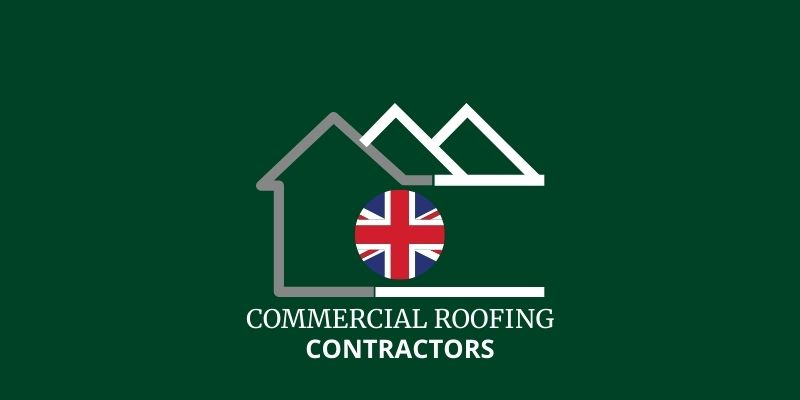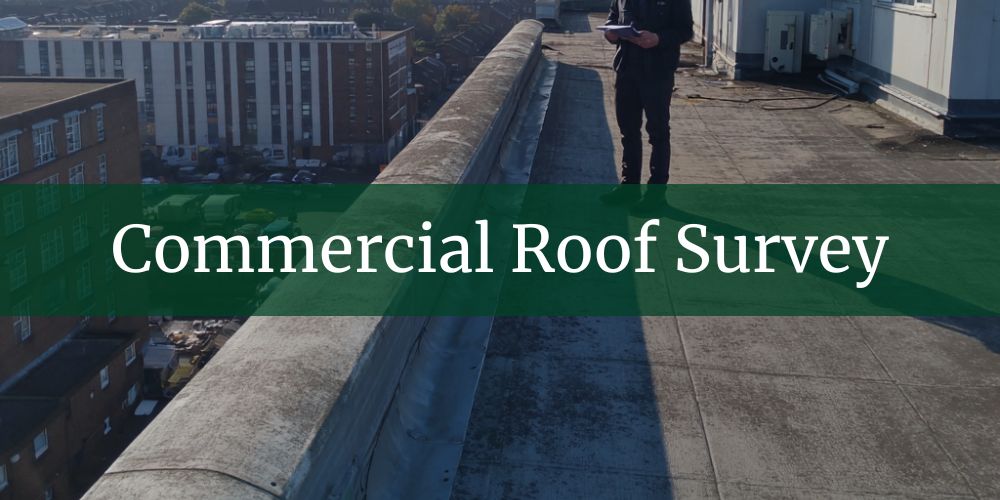A commercial roof survey is an essential preventive measure to avoid costly repairs, as it identifies potential issues such as leaks, structural weaknesses, and weather-induced damages before they escalate into major problems. Given the UK’s variable climate, with frequent rain, strong winds, and occasional snow, commercial roofs are susceptible to premature wear and tear that can lead to expensive repair bills if not addressed promptly. Regular surveys allow property managers and building owners to schedule timely maintenance and make informed decisions about repairs or upgrades, thereby extending the life of the roofing system and protecting the building’s interior. Commercial Roofing Contractors provide commercial roof surveys all over the United Kingdom.
For commercial building owners and facility managers across the UK, understanding the importance of regular roof surveys can save thousands of pounds in unexpected repairs and operational disruptions. In this blog, we’ll explore why commercial roof surveys are vital, what a comprehensive survey includes, and how addressing issues early can secure your investment and operations in the challenging UK weather conditions.
What Is a Commercial Roof Survey and Why Is It Essential?
A commercial roof survey is an assessment to determine the condition and repair needs of a roof. Conducting these surveys is essential for identifying potential issues early, preventing costly repairs and ensuring the integrity and safety of a commercial building. Timely surveys help in prolonging the roof's lifespan, maintaining energy efficiency, and safeguarding the building's occupants and contents.
Below is a list of reasons highlighting the importance of a commercial roof survey:
- Early Detection of Issues: Identifies potential problems before they escalate.
- Cost Efficiency: Helps avoid costly emergency repairs.
- Prolongs Roof Life: Regular surveys extend the lifespan of the roofing system.
- Energy Efficiency: Ensures the roof maintains good insulation properties.
- Compliance: Ensures adherence to safety and building regulations.
Early Detection of Issues: Identifies potential problems before they escalate.
Early detection refers to identifying roof issues at the earliest possible stage.
Conducting a commercial roof survey allows building managers to spot minor issues before they turn into major problems. Catching these early can prevent water damage, structural issues, and further deterioration.
By identifying potential damage such as leaks, cracks, or drainage issues promptly, maintenance can be planned proactively, ensuring that repair work is less intrusive and more cost-effective.
Cost Efficiency: Helps avoid costly emergency repairs.
Cost efficiency involves reducing expenses through timely interventions.
Scheduling regular roof surveys can significantly reduce expenses by preventing large-scale repairs or replacements. Addressing problems when they are minor is far less costly than fixing or replacing an entire roof.
Moreover, unexpected large repairs from undetected damage can disrupt business operations and result in additional costs, making regular surveys a wise financial investment.
Prolongs Roof Life: Regular surveys extend the lifespan of the roofing system.
Prolonging roof life means increasing the longevity of the roofing structure.
Regular surveys ensure that a roof remains in optimal condition by detecting issues that can be repaired early, thus extending its usable life. As a significant investment, a roof's longevity is crucial for business continuity and financial planning.
A properly maintained roof provides better protection against environmental factors and wears down more slowly, delaying replacement needs.
Energy Efficiency: Ensures the roof maintains good insulation properties.
Energy efficiency pertains to a roof's ability to conserve energy effectively.
Commercial roof surveys can assess how well a roof is performing in terms of insulation and energy conservation. Properly insulated roofs help maintain stable indoor temperatures, reducing the need for excessive heating or cooling.
Ensuring that a roof is energy efficient through regular surveys can lead to reduced energy bills and a smaller environmental footprint for the business.
Compliance: Ensures adherence to safety and building regulations.
Compliance means meeting the necessary safety and legal standards.
Ensuring a roof complies with relevant building codes and safety regulations is vital for the legal operation of a business. Regular surveys assess whether the roof is up to code and safe for building occupants.
Non-compliance can result in fines, liability issues, or forced closures, making adherence a critical aspect of building management.
Have a question about an upcoming project?
How Can Regular Roof Surveys Prevent Costly Repairs?
Regular roof surveys can identify minor issues before they develop into major, costly repairs. By proactively managing potential problems, property owners reduce the risk of damage, prolong the roof's lifespan, and optimise maintenance budgets. Early detection of issues allows for timely interventions, minimising both the extent of damage and the associated repair costs.
Here are five key ways regular roof surveys help prevent costly repairs:
- Early Detection of Damage: Identifies issues before they escalate into major problems.
- Extending Roof Lifespan: Regular maintenance practices prolong the structure's durability.
- Preventive Maintenance: Proactively addresses potential vulnerabilities to minimise future repair costs.
- Risk Mitigation: Reduces the likelihood of unexpected and expensive roof failures.
- Cost Effective Management: Helps maintain an efficient budget for roof-related expenses.
Early Detection of Damage: Identifies issues before they escalate into major problems.
Early detection refers to finding and addressing minor roof issues promptly.
This proactive approach ensures that potential problems like leaks or cracks are tackled early.
Addressing damage at this stage typically incurs lower repair costs compared to when issues worsen. Regular checks with early detection prevent small problems from growing into costly and extensive repairs, saving time and resources.
Extending Roof Lifespan: Regular maintenance practices prolong the structure's durability.
Extending roof lifespan means taking actions that help roofs last longer.
By conducting regular surveys, you ensure the roof remains in optimal condition over its expected life.
Routine checks and maintenance allow property owners to make minor repairs that stave off deterioration, thus maximising the roof's useful life and postponing the need for a costly full replacement.
Preventive Maintenance: Proactively addresses potential vulnerabilities to minimise future repair costs.
Preventive maintenance involves scheduled activities to prevent major issues from developing.
Through regular surveys, vulnerable areas of the roof can be reinforced before failure occurs.
These preventive measures significantly reduce unexpected repair costs and can be more economical than reactive strategies, providing peace of mind to property owners.
Risk Mitigation: Reduces the likelihood of unexpected and expensive roof failures.
Risk mitigation encompasses strategies for minimising the impact of potential roof failures.
Regular inspections identify potential risks and address them before leading to costly failures.
This proactive strategy not only protects the building's structural integrity but also safeguards its contents from weather-induced damage, ensuring continued safety and functionality.
Cost Effective Management: Helps maintain an efficient budget for roof-related expenses.
Cost effective management refers to managing expenses wisely to maximise efficiency.
By conducting regular surveys, property owners can better predict and budget for roof maintenance costs.
This strategic approach allows for planned budgeting and financial forecasting, ensuring roof costs remain manageable and unexpected burdens are avoided.
What Should You Look for When Choosing a Professional for a Roof Survey?
When choosing a professional for a roof survey, look for relevant qualifications, experience, and a strong reputation. Ensuring the surveyor has a documented track record and positive client feedback can prevent potential issues. It is essential to hire someone capable of conducting a thorough and accurate assessment of your roof's condition.
Here are some of the most important factors to consider when selecting a roof survey professional:
- Qualifications: Must hold relevant industry-specific certifications and accreditations.
- Experience: Proven track record in conducting comprehensive roof surveys.
- Reputation: Positive reviews and recommendations from previous clients.
- Comprehensive Reports: Provides detailed and easy-to-understand survey reports.
- Insurance: Holds professional liability insurance to cover potential damages.
Qualifications: Must hold relevant industry-specific certifications and accreditations.
Qualifications refer to the formal certifications and accreditations a professional holds in their field. When it comes to roof surveys, hiring someone with the right qualifications ensures they possess the theoretical knowledge necessary for accurate assessments. Look for professionals with certifications from recognised bodies, as this indicates a high level of training and competence in the roofing industry.
An adequately qualified professional is likely to adhere to industry standards and best practices, reducing the risk of oversight. This will provide you with confidence in their ability to detect potential roofing issues, potentially saving on future costly repairs.
Experience: Proven track record in conducting comprehensive roof surveys.
Experience measures the practical exposure a professional has gained over time concerning roof surveys. A professional with extensive experience is more likely to recognise issues quickly and suggest effective solutions. Experience matters because it often translates into greater skill and efficiency during the survey process.
Checking a surveyor's experience includes reviewing their past projects and client testimonials, helping to ensure they have consistently delivered comprehensive and reliable survey outcomes. Experienced professionals can offer insights and practical solutions that less experienced surveyors might overlook.
Reputation: Positive reviews and recommendations from previous clients.
Reputation reflects the general perception and regard based on prior work and client satisfaction. A professional with a positive reputation has likely provided satisfactory service consistently over time, earning them good reviews and word-of-mouth recommendations. It is often a reliable indicator of one's ability to deliver quality surveys.
Checking reviews on their website, social media, or platforms like Trustpilot provides valuable insights into their work ethic and reliability. A strong reputation is critical as it assures you that the professional has met or exceeded client expectations in the past.
Comprehensive Reports: Provides detailed and easy-to-understand survey reports.
Comprehensive reports thoroughly document the condition of the roof, with clear and concise findings. A well-detailed report can help in making informed decisions about necessary repairs or maintenance. It's crucial to ensure the professional can convey technical information in accessible language.
Look for professionals who provide structured reports with photographic evidence and explanations of potential issues. These reports should offer actionable insights and recommendations, both of which assist property owners in planning repair budgets effectively.
Insurance: Holds professional liability insurance to cover potential damages.
Insurance provides financial protection against any damages or liabilities that may occur during the survey. Having insurance signifies that the professional is prepared to mitigate the risks associated with survey activities. It assures you that the surveyor is responsible and has measures in place to address unforeseen issues.
Check whether the professional has both public liability insurance and professional indemnity insurance. This protects you as the client, as any errors or damages resulting from the surveyor's work are financially covered, offering peace of mind.
Conducting a commercial roof survey is an indispensable step in safeguarding your property against expensive repairs, especially given the unique climate challenges in the United Kingdom. Regular roof surveys allow for early detection of potential issues, helping to ensure that your commercial roofing system remains in optimal condition. Ensuring that your commercial roof is meticulously maintained is not only vital for extending its lifespan but also crucial for maintaining energy efficiency and operational reliability. At Commercial Roofing United Kingdom, we understand the intricacies involved in keeping roofs resilient against the UK's varying weather conditions and are dedicated to helping you maintain a robust and efficient roofing system.
If you need expert advice on conducting a thorough commercial roof survey or require a professional assessment of your existing roofing system, please get in touch with us through our contact form. Our knowledgeable team at Commercial Roofing Contractors is ready to provide you with tailored solutions to prevent costly repairs and ensure the longevity and performance of your commercial roof.

